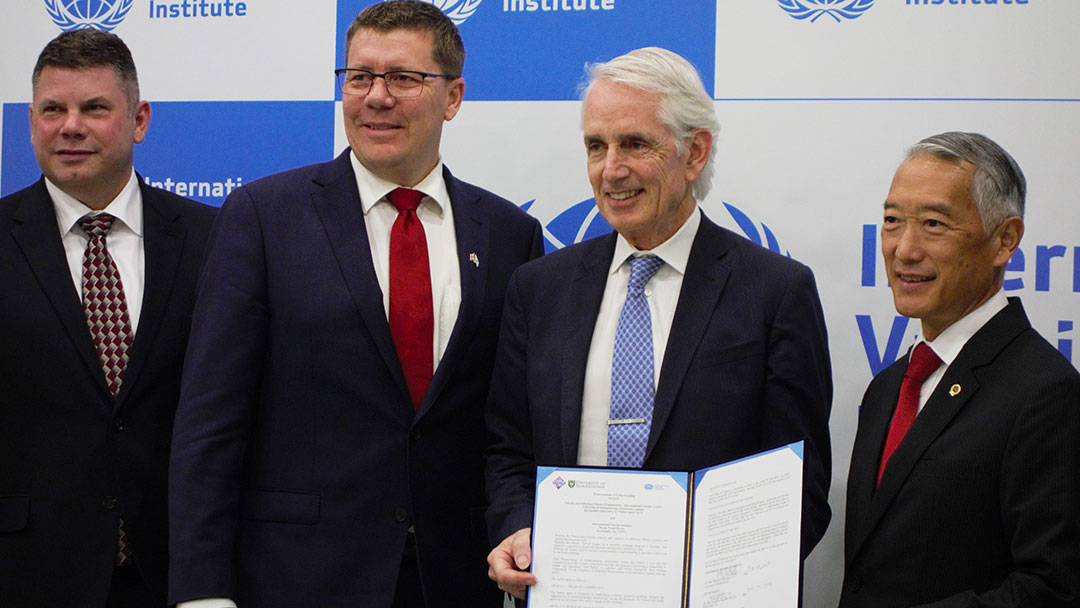
USask’s VIDO-InterVac and South Korean’s International Vaccine Institute to undertake scientific exchanges
USask’s VIDO-InterVac and South Korea’s International Vaccine Institute (IVI) have signed a memorandum of understanding (MOU) to share expertise and best practices in vaccine development to benefit human and animal health globally.
By Research Profile and ImpactLocated on the Seoul National University campus, IVI is a world-renowned organization of the United Nations Development Programme dedicated to vaccines and vaccination for global health. USask’s VIDO-InterVac is a global leader in infectious disease research and vaccine development and has commercialized eight vaccine technologies, six of which are world firsts.
The MOU, signed this week in Seoul by USask President Peter Stoicheff, VIDO-InterVac associate director Paul Hodgson, and IVI director general Jerome Kim, establishes a formal scientific exchange program between the two organizations in infectious disease research and vaccine development, and enables students, post-doctoral fellows and scientists to complete training and learning exchanges. Saskatchewan Premier Scott Moe was on hand to witness the signing ceremony.
“Infectious diseases are one of the top causes of morbidity and mortality worldwide, and along with vaccine hesitancy (reluctance or refusal to be vaccinated or to have one's children vaccinated), comprise six of the World Health Organization’s top 10 threats to global health in 2019,” said Hodgson.
“This agreement builds on the complementary expertise and capacity of our two organizations in vaccine development, animal models and new foundational technologies for the benefit of human and animal health globally,” he said.
The two organizations have worked together for more than a decade. Multi-million dollar joint research funded by the Bill and Melinda Gates Foundation under one of the foundation’s original 43 grand challenges in global health program resulted in the discovery and patenting of a novel adjuvant (an immune response booster) for vaccines.

